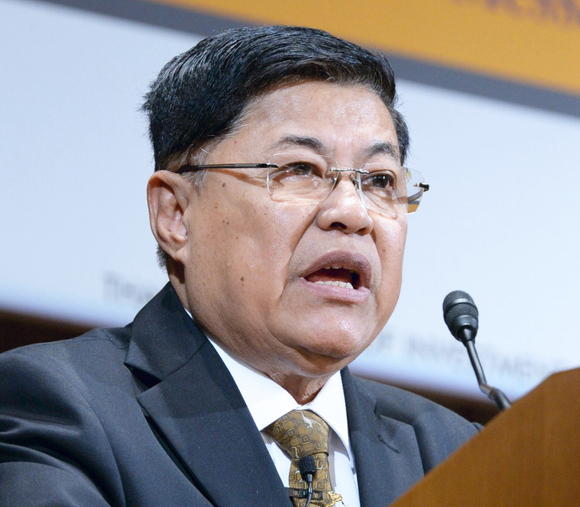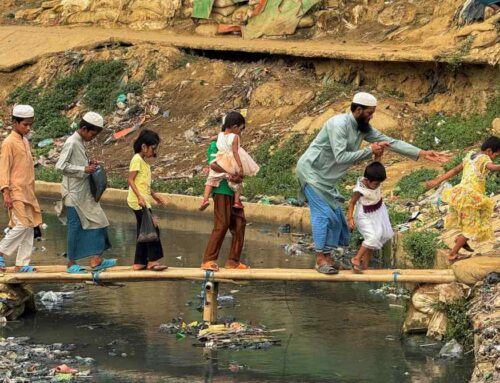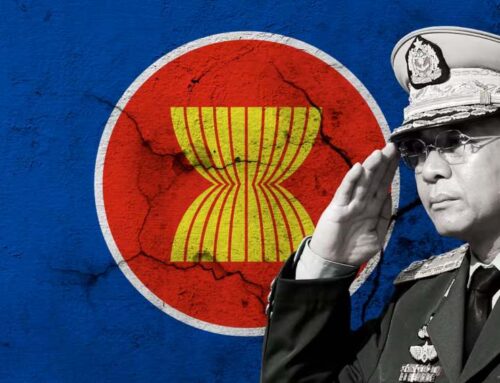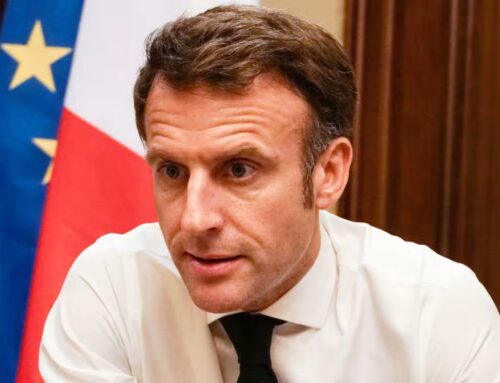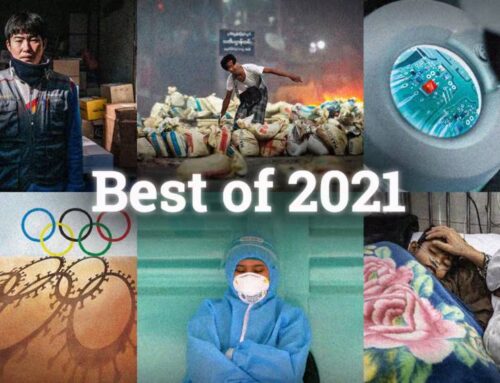Myanmar minister confirms push to open banking sector, step up political reforms
{1st Photo Caption: U Soe Thane, minister of the President’s Office of Myanmar, speaks during the International Conference on The Future of Asia in Tokyo on May 23.}
ECONOMY
Myanmar minister confirms push to open banking sector, step up political reforms
(Myanmar opening banking sector, stepping up political reforms)
GWEN ROBINSON, senior Asia editor, Nikkei Asian Review
May 23, 2014 1:30 pm JST
TOKYO — Myanmar will step up crucial reforms, including boosting efforts to attract investment and create jobs as well as deepening its nascent democracy, according to U Soe Thane, the country’s key economic minister.

Soe Thane told the conference on May 23 that Myanmar, as chair of the Association of Southeast Asian Nations for 2014, would do its utmost to keep the grouping on track for its December 2015 deadline to launch the Asean Economic Community.
“All Asean members must abide by the (AEC) rules, and Myanmar will abide by all the agreements, for example on customs, labor and investment rules,” he said.
As coordinating presidential minister for economic reforms, Soe Thane is overseeing the push to open up Myanmar’s banking and economic sectors. In a separate interview with the Nikkei Asian Review, he said his government is considering granting up to 10 foreign banks branch licenses to conduct business in Myanmar. However, their range of operations would be initially “very limited,” probably to wholesale operations for foreign clients in areas such as trade and project finance and remittances, he said.
As earlier reported by the NAR, the government has chosen German consultant Roland Berger to run a tender process for the bank licenses and make a shortlist of applicants. Most of the 35 foreign banks with representative offices in Yangon are expected to apply. It is likely that successful candidates will include three or four banks from Asean countries — probably Malaysia, Singapore, Thailand and Vietnam; at least two of the three Japanese banks that have been lobbying for a license; up to two Chinese banks; and the only two western banks with representative offices — the U.K.’s Standard Chartered Bank and Australia and New Zealand Banking Group.
Change through investment
Soe Thane also called on foreign investors for “responsible investment” in his country and commended the growing involvement of Japanese companies in Myanmar. “We need responsible investment … within the scope of our regulations; Japanese investment has helped our development. If Japan can share its experiences, its know-how with Myanmar, it will help us change our country into an exporter not only of raw materials but also of processed, value-added goods; that, in turn, will increase employment, and employment certainly leads to higher democracy. Under the military regime, people could not enjoy democracy. Now people have the opportunity to become wealthy, own cars and so on.”
Addressing the government’s continued push for political reforms, Soe Thane told the conference that within 20 years, Myanmar would be a full democracy. “This means slowly but surely allowing our political parties to consolidate and to become entities that produce policies, alternatives and foster a culture of debate. This means creating the space for the electorate to educate itself to ask the right questions and to request appropriate answers from party leaders rather than following a populist agenda. This means free and fair elections, or better said, transparent and inclusive elections that allow all people to express their personal opinion and preferences through a ballot box.”
The minister dismissed growing criticism of a perceived slowdown in the reform process. He told the NAR that while such criticism is only natural, “we have learned that if you run too fast, you have a problem. We need to keep moving rapidly (on reform) but also to do it in a logical, consistent manner.”
Source Link (Old): NIKKEI ASIAN REVIEW
Source Link (New): NIKKEI ASIAN REVIEW
